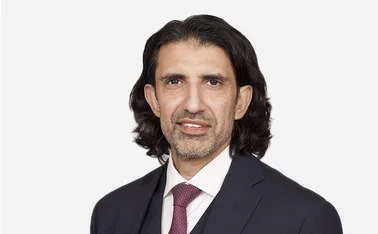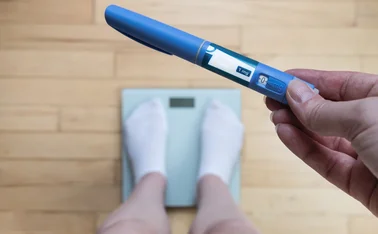
Did Nationwide score a touchdown or fumble the ball with its #makesafehappen Super Bowl advert?

The screening of an advert of US insurer Nationwide during the Super Bowl triggered a debate about insurance commercials, the likes of which has not been seen in the UK. Jonathan Swift looks at the fallout and asks six experts for their views.
As a person of a certain age I grew up on a diet of shocking ‘child safety' adverts, warning about everything from flying kites next to electrical substations to playing by rivers with ‘no swimming' signs.
TV ommercials made unlikely TV celebrities out of the likes of the Green Cross Code man [recently regenerated by RSA] and Charley the cat, who was immortalised in the early Prodigy rave hit "Charly".
Even Jimmy Saville was involved in a seatbelt campaign called ‘Clunk Click', which in hindsight makes it the most scary of this generation of public safety films.
It was with these memories in mind that I watched the new television advert from US insurer Nationwide that was first aired during the Super Bowl on Sunday and has subsequently been the subject to plenty of commentary on social media.
Personally I have mixed views of the Nationwide advert - which is part of a broader #makesafehappen campaign - as both a parent of a young child and someone who comments on the insurance sector.
On one hand it is certainly brave, reminding me of the early parts of Oscar front runner Boyhood in tone and feel, and focusing on protection, rather than price.
But in many ways it is anti-Meerkat marketing, and I can understand how many Americans' Tom Brady/Katy Perry induced-Super Bowl buzz was somewhat deflated by the clip. But then again it no doubt stood out amongst the latest blockbuster trailers and humorous celebrity-strewn commercials.
As one marketing specialist told me: "[Nationwide] have created a campaign that it would be hard to criticise... who wouldn't want to save children's lives?"
It was also noted by those I spoke to that they liked the content on the complementary campaign website, and how the marketing specialists have resisted temptation to pack in sales messages just to appease bosses.
But despite the positives, there has been criticism across social media and other channels. With some moaning about the timing during such a family orientated viewing event coupled with accusations of scaremongering to sell insurance. And I have a concern that these reservations might further fuel people's negative views of a sector that does not have the greatest reputation, despite the good intentions
But what do the experts think? Here are the thoughts of six:
Marc Donfrancesco, consultant, Second Opinion and inaugral Insurance Marketing & PR Awards judge:
The advert looks a clear and has a striking strategy which is well executed across various media, but is potentially in danger of over-promising and seeming disingenuous if they say they want "safe & happy children" rather than to sell insurance.
They have certainly gained attention but sustainable campaigns have to be backed up by the actions of staff when dealing with customers at front and back end - it will be challenging to achieve this.
Jon Sellors, ex-group head of media relations & digital communications, RSA and inaugral Insurance Marketing & PR Awards judge:
Clearly [the advert] addresses a challenging yet important issue and in my opinion it does it in an effective way - certainly a cursory search on the web shows that it has had impact and sparked debate.
Where I do think they have perhaps made a mistake is in the timing, choosing to break it during the Super Bowl an iconic American event with strong family connotations was in my mind an error.
[It was a] tough judgement call, [in that] it clearly guaranteed massive exposure and impact. But on balance I think the subject jars too much with a celebratory event. To give them credit they are retweeting the resultant media coverage that the ad created so it does appear their desire to ‘spark a debate' was genuine.
Tina Shorlte, marketing consultant, Shortle Marketing Limited and inaugral Insurance Maketing & PR Awards
I would make the following points:
1. The campaign's call to action #makesafehappen is
cleverly named to take a negative saying ('accidents happen' or 's@@t happens') and turn it into a positive rallying cry.
2. It stimulates strong reactions - both positive and negative - which are essential for cut through and ongoing debate/sharing.
3. It positions Nationwide clearly in the serious protection space which is very different to many of the other big names in the States.
4. Nationwide has done well to keep true to what is clearly a brand-building campaign. The advert focuses on the #makesafehappen cause without any selling of insurance undertones. The campaign is also integrated across TV, website and social media. There is also a useful app to download with, again, no obvious commission kick backs from suppliers - just a simple relevant link to Amazon.
5. That said, Super Bowl commercials work best if the audience is persuaded to interact then and there via their mobile devices. Was this subject matter and creative approach inappropriate for the Super Bowl audience who expect more flippant, positive messages? With such an expensive media placement, Nationwide should have considered how best to maximise immediate response and interaction.
6. I am not convinced this idea has longevity unless Nationwide challenge the government to change policy to make children safer and encourage communities to take action too. To ensure this positioning isn't forgotten, Nationwide need action rather than just words.
Jamie Marchant, former marketing and communications director, Groupama Insurances & inaugral Insurance Marketing & PR Awards judge
It's certainly hard-hitting but it is also attention grabbing, to the extent that well over five million people have viewed it on YouTube alone. If only a fraction clicked through to read the online risk management guide and download the app, I'm guessing Nationwide will be pretty pleased.
Whether it is liked or not (over 13,000 disliked it), it's done its job and Nationwide will have a wealth of data to interrogate and a lot more attention for their brand. The fact that we're talking about a US insurance brand here in the UK probably says it all.
Fortune favours the brave and I suspect that this advert has raised awareness of the child accident protection campaign (and Nationwide) exponentially.
Good stuff. And I have to say that the suite of online support materials are also excellent. Budget was probably huge but believe me, Nationwide will be able to measure the ROI and effectiveness very accurately.
Paul Picknett, non executive director, Turning point and judge, British Insurance Awards
I feel the ad certainly grabs the attention but it has more prevention overtones than insurance connotations. As an industry we have often been accused of not doing enough on the prevention front, but a number of companies have run successful prevention campaigns. Back in the days [my previous employer] Lombard had a very good road safety and general household hazards campaign with the Kent police in local schools. It never ran to TV ads.
The feeling probably was that such campaigns benefit the industry as a whole and doesn't necessarily deliver anything substantial for the company promoting it, except for brand awareness.
Paul Lynes, director of communications and public affairs, Ageas
I think the key to this is Nationwide's objectives. Did they really want and anticipate the"fierce conversation" they now refer to that has subsequently transpired? If so, they will deem it a success. To counter that, did they recognise that lots of people would feel negatively towards the brand as a result? I read that around two thirds of the commentary on social media was negative and the vast majority of comments I found werein that category. So a brave move if they did anticipate that.
Another aspect for me was authenticity. Did this ad feel right coming from Nationwide? You can see a disruptive, challenger brand perhaps pulling it off because that's what people might expect from them. When I looked at Nationwide's web page, how they describe themselves, their values and strategy, it felt like a "safe" rather than "challenging" brand. Their strap line is "Nationwide on your side" - did the ad make their key target parent/grandparent audience feel like that? The majority of the reaction would suggest not.
To be fair to them, they did create a supporting website on the campaign which was much more "on brand" with very good information and support and ways to look at safety - for example, you can select by child's age to get info on the most common safety issues affecting them together with the most relevant tips to deal with those issues. They clearly have a rich heritage in championing this area of safety but the tone of the site is very different to the ad.
So if you were forcing me to get off the pot I would say that overall the ad jars. It involves a dead child. It was shown during a prime family viewing time when people didn't want to see it. It has provoked reactions of "poor taste" leading to negative perceptions of the brand, despite perhaps achieving part of what they wanted, ie increased visibility and focus on a key safety issue.
Interestingly, I wonder if the reaction would have been different if the ad was part of a wider industry campaign rather than coming from a specific brand? It will still have the appropriateness test to pass given it was shown during the Super Bowl. But I'm thinking of those horrible cigarette ads that are on TV at the moment in the UK showing what you are inhaling into your body in very graphic terms. You may be able to push the boundaries more if your message is viewed by those receiving it as expert led (ie from health professionals) rather than company or product led. Just an interesting tangential thought on the debate.
So what do you think? Do you think a UK insurer could and would replicate such a campaign in the UK?
Please add your comments below:
Only users who have a paid subscription or are part of a corporate subscription are able to print or copy content.
To access these options, along with all other subscription benefits, please contact info@postonline.co.uk or view our subscription options here: http://subscriptions.postonline.co.uk/subscribe
You are currently unable to print this content. Please contact info@postonline.co.uk to find out more.
You are currently unable to copy this content. Please contact info@postonline.co.uk to find out more.
Copyright Infopro Digital Limited. All rights reserved.
As outlined in our terms and conditions, https://www.infopro-digital.com/terms-and-conditions/subscriptions/ (point 2.4), printing is limited to a single copy.
If you would like to purchase additional rights please email info@postonline.co.uk
Copyright Infopro Digital Limited. All rights reserved.
You may share this content using our article tools. As outlined in our terms and conditions, https://www.infopro-digital.com/terms-and-conditions/subscriptions/ (clause 2.4), an Authorised User may only make one copy of the materials for their own personal use. You must also comply with the restrictions in clause 2.5.
If you would like to purchase additional rights please email info@postonline.co.uk








